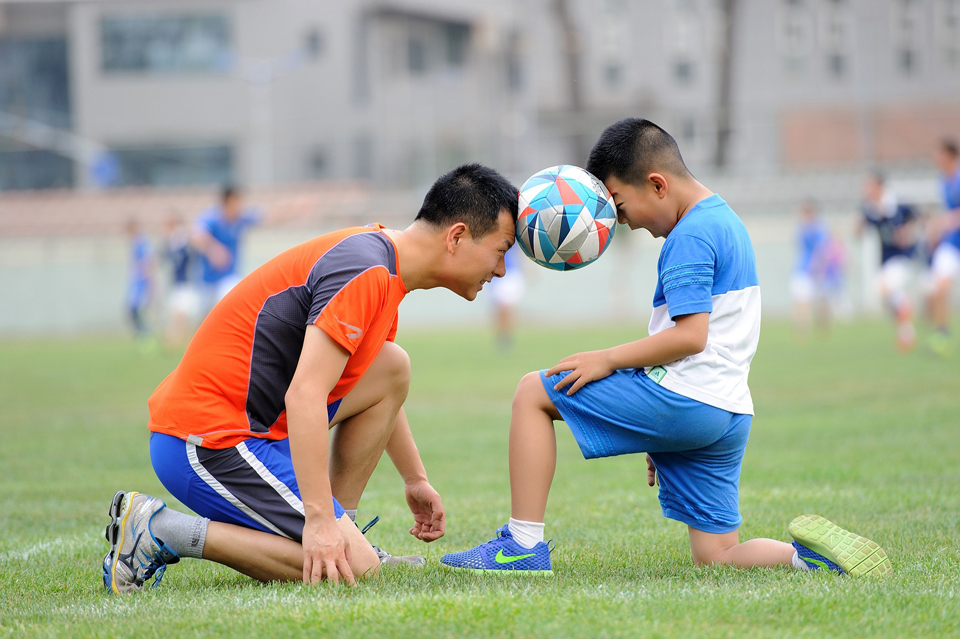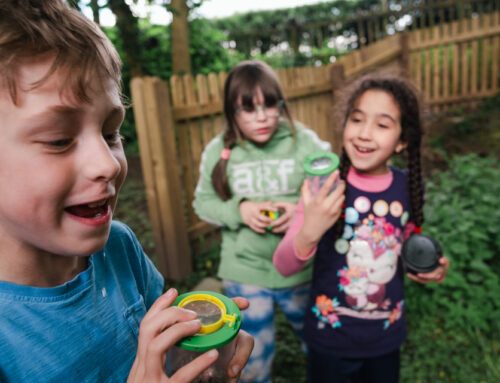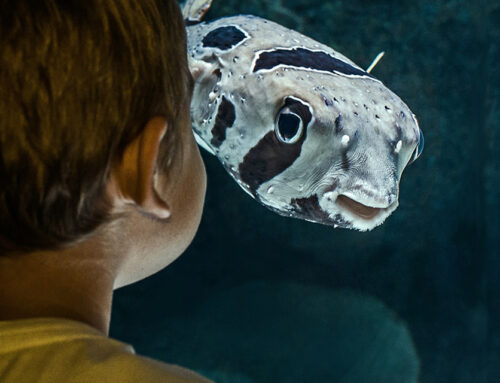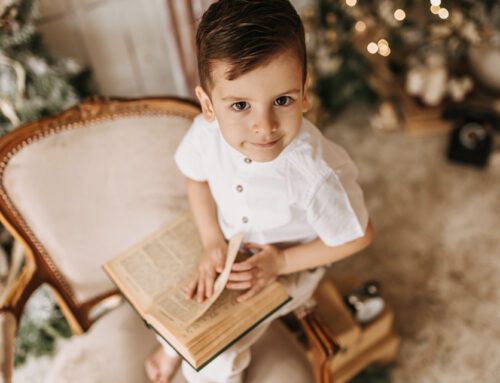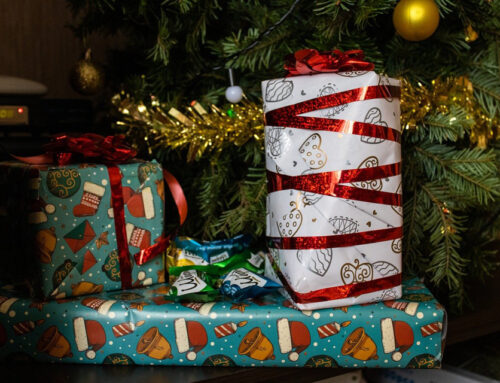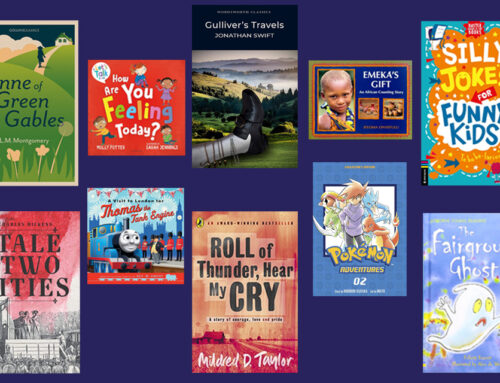What happens when your team loses? The rain falls? Or you can’t find your glasses or keys?
Do you shout and throw your hands in the air in despair? Angrily blame the referee, judges, weather forecaster – or even yourself for being ‘so stupid’? All of those reactions are common. But think of the children who watch and learn from your reactions. The high potential learners who are sometimes ‘out of sync’ with knowing how to behave and will copy your example?
What if you could influence them into other, more constructive ways of behaving? Ones that encourage them to problem solve? To stick at a challenge? To find the silver lining to that rain cloud? – Well you can!
Being a Role Model
With a little practice, you can be a role model to the children in your care and show them (‘model’) a way of reacting and thinking (‘role’) that is healthy for them.
Role models aren’t really the popstars, sporting icons or cartoon heroes. The young children in your care watch and learn from you constantly; they are little copycats of so much of what you show, from how to talk and walk to how to determine if an experience is judged ‘good’ or ‘bad’. As they grow, even teenagers keen to show independence still have an eye on the ‘parental modelling’ shown to them as they gauge how to react to life’s events.
“Do as I say, don’t do as I do…”
When your child’s team loses, do you find it hard to cope with them shouting, wailing and waving (like they have seen you do)?
Is it hard to be tolerant when they have a meltdown every time their friend is ‘better’ at swimming, spelling or being rewarded by the teacher?
And many parents are pushed to their limit when trying to get a child to school (or even a party) who feels disaster has struck due to a rain shower or because they, (like you), feel that they must be ‘so stupid’ because they have lost their bag, glasses or locker key…
Children with high learning potential are often quick to be discouraged unless they have been coached in how to meet and deal with challenges. If parents and carers can model more positive reactions, this helps not only their child – but the adult, too!
What are the Main Areas of Concern?
It may not be easy to see for yourself where you could be modelling new, constructive behaviours. However, you could ask a trusted friend or partner for feedback on where your reactions aren’t setting a helpful example to your children. Perhaps, without realising it, you are encouraging them to be anxious, selfish or demotivated. Or are you showing them how to react as though realistically small events might make them unwanted or are catastrophes that can’t be overcome?
A second suggestion is to see where your child appears to be reacting strongly. When do they have tantrums or meltdowns? What kinds of things do they seem to see as disasters? How do they describe themselves or ‘self-talk’ when they make a mistake? Some of these areas can probably be traced to them being copycats of your own role modelling and strong reactions. Take a look and see if you can identify these and begin to use gentler phrases, to talk about different sides to situations – win solutions and to voice a more positive attitude (even if to start with it’s hard to really feel it inside).
Modelling Specific Behaviours
Using the above insights into your own child with high learning potential, here are some ideas and resources to explore:
You don’t win the lottery or your team loses – in international sports or a family board game!
You before: “Oh what a disaster! The team might as well pack up and give up!” / “I’m glad you showed me, but I’m clearly not cut out for chess! I just wasted my afternoon.” / “There’s absolutely no point entering the lottery because you never win!”
Copycat kids learned then: Give up at the first hurdle. There’s shame in practising and taking time to improve. Success is based on an immediate and specific result.
You now: “I see that the best team won on the day and the others had some good moments but also need to look at and learn from their performance.” / “It was fun to spend time together. Thank you for trying to teach me chess; I’ll get a book out of the library and we can try again.” / “When I think calmly, I know it would be rare to win the lottery – and anyway a lot of the money goes to charity, so that makes it worth it.”
Copycat kids learn now: Balanced thinking. Trying again and being resilient – but not expecting to ‘win’ or have the right answers 100% of the time.
This links to: Growth Mindset and Resilience; 10 Questions about Mindset and High Learning Potential, High Learning Potential Parenting: “Can’t Cope?” – Try Nurturing A Growth Mindset and Resilience and High Potential Learners .
The rain falls or things don’t go to plan
You before: “No, we can’t go out – it’s raining! Nobody likes getting wet! I hate the weather in this country. Nothing is going right today…”
Copycat kids learned then: Limiting beliefs and inflexibility. Absolutes and extremes. ‘Black and white thinking’.
You now: “We can go out soon. It doesn’t matter that it’s raining, but I’d rather not get wet today. Instead, let’s think of all the plants, animals and buildings that have needed this rain. We’re so lucky to have greenery around us and enough water to drink. There are always different sides to every situation! It’s good for us to learn to be flexible.”
Copycat kids learn now: About grey days and grey areas! The value in seeking the ‘silver lining’ in a cloud.
This links to: Perfectionism; Perfectionism .
Lost glasses, keys, etc. or being forgetful and disorganised
You before: “Aaaagh! Where did I put my keys??!! Whyyyy am I so stupid??!!”
Copycat kids learned then: Total rejection and harsh self-criticism. Blame. Being helpless.
You now: (Gentle laughing) “I need to get better at organising myself! Who can help remind me and what system can I put in place?”
Copycat kids learn now: It was their planning and organisation (not their selves) that weren’t up to the challenge – and these can be worked on!
This links to: Executive function and learning skills; Executive Function Skills – Simplifying a Young, High Potential Learner’s ‘Thinking’ and ‘Doing’, Self-Regulated Learning – Being Aware of How You Learn Best and advice sheet PA522 Executive Function Skills
Clothes or the environment aren’t right
You before: “I can’t wear wool! It’s so hot and scratchy!”
Copycat kids learned then: Defeatist attitude and a ‘fact’ that things are that way.
You now: Sometimes wool itches me – but sometimes I am fine! I have learned I’m fine with a wool mix or if I have a shirt under my jumper. Wool is actually very natural and it’s great at keeping me warm when I get the layers right.”
Copycat kids learn now: It may take effort, but there are ways to cope with uncomfortable clothes like school uniforms, loud noises, bright lights, etc…
This links to: Sensory Processing Difficulties (SPD); Sensory Sensitivity and free advice sheet F05 Sensory Processing Disorder and High Learning Potential.
Learning difficulties or other disorders create hurdles
You before: “If only you didn’t have these issues with your Autism / ADHD / Anxiety / Dyspraxia (etc), we could join the group and enjoy the party games!”
Copycat kids learned then: Being not good enough and giving up. Being defined by the areas that challenge them and not by their strengths. Being an outsider.
You now: “How can we change things or plan ahead so that you are able to join the group? What games would you enjoy – or would you rather watch? How can you be proud of your growth today? What inspirational figures are there as role models for you with these same challenges? You can do this!”
Copycat kids learn now: It’s possible for them to push the boundaries of their comfort zone and to follow in the paths of other role models as well as you; those who have begun to break down some of the same barriers to success and happiness.
This links to: Inspirational Figures
Skills Builder

About the author: Gillie Ithell is writer, adviser and Advice & Information Officer for Potential Plus UK, holding a B.A. in Modern Languages & Communication and further qualifications in mental health. Having worked internationally as content manager of classic board games and ‘edutainment’ software, Gillie now writes to inspire others like herself; on a daily journey with High Learning Potential.

